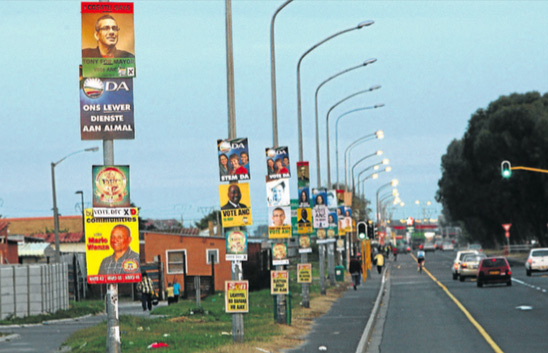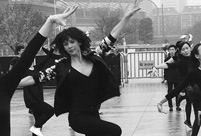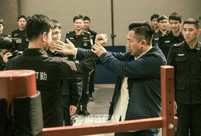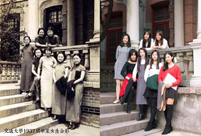


Party posters are display on street poles before a previous municipal election in SA.
The South African democratic governance structure is a three- tier structure that is national, provincial and local government.
The local government elections (municipal) are held every five years whereby mayors and councillors who will be responsible for governing a municipal area are elected for the next five- year period. This level of government is directly responsible for the provision of services that directly impact the daily lives of ordinary citizens in such as water, electricity and sanitation.
Even though President Jacob Zuma in his 2016 state of the nation address did make the announcement that the elections will be held three months from the date of the last elections, in terms of the Constitution (May 18 and August 16), the exact date of the 2016 local government elections has not been proclaimed by the minister of cooperative governance and traditional affairs.
Ward 118 that stretches from Cyrildene to Cleveland is home to many Chinese South African citizens. The nomination process of candidates for Ward 118 from all political parties has started and the South African Chinese are eagerly participating in the preparation for the election.
“Chinese immigrants are the beneficiaries of the new SA, and we should be grateful,” says Hai Shi, Chairman of the Southern Africa Shanghai Industrial and Commercial Liaison Association. “The reconciliation policy has ended the oppression in the Apartheid time, and granted Chinese immigrants a fairer competitive environment.”
Hai Shi is running a WeChat account called “The South Africa 2016 local government elections Greater Joburg Chinese Community ANC support Committee”, which updates daily on the ANC’s news on the latest developments of the elections, in an effort to strengthen Chinese immigrants’ understanding and support for the ANC, enhance the relations and communications between Chinese immigrants and the ANC, and to help Chinese immigrants integrate into the mainstream of society.
Through the WeChat platform, the ANC support committee has introduced basic information about the ANC, the ANC history, its prominent members and leader and its activities in the local elections.
“As the economic situation improves for the Chinese immigrants, we increasingly want to participate in political life to maintain the social economic environment which is favourable to our development through participation in elections or charities,” says Hai Shi. “I know two Chinese who are running for the ANC PR List candidates.”
The Proportional List means councillors are elected according to the percentage of the total vote received by the party during the local government elections.
Hai Shi has been in SA for more than 20 years. “The new- comers generally are more concerned with security, immigration policy and issues that are closely related to their own economic development, while the older generation is more concerned with the social status of Chinese immigrants, the preservation of Chinese culture and values. But the will to express is equally strong,” says Hai Shi.
In the 2016 municipal elections, there is also a Chinese South African running for the Ward 118 councillor. The ward councillors are directly elected by the registered voters in a particular ward during local government elections. “If elected, my goal is to promote employment and stimulate economic development in my ward, and the reputation of the South African Chinese will be enhanced with more Chinese involved,” says Jianling Wu, the nominated candidate of Ward 118 for the ANC. “As far as I know, I’m the first South African Chinese running for ward councillor in this way.
“From internal nomination, to the screening committee, then to the public meetings, I have gone through the whole electoral process to become the nominated candidate. For the voter registration in March, I ordered tents, recruited volunteers and went on a door-to-door campaign. In other words, I’m fully integrated into the electoral system,” says Jianling Wu.
Jianling Wu has been in SA for 20 years and is a mother of two children. “The more overseas Chinese participate in politics, the louder their opinions can be heard by the government,” says Jianling Wu. “It is not only beneficial to our generation, but also to our children.”
The ANC sub-branch of Ward 118, established in June 2015 and located in the famous Chinatown Cyrildene in Johannesburg, serves as a platform to attract Chinese immigrants to participate in politics.
In an exclusive interview with People’s Daily Online, the chairman of the ANC sub-branch of Ward 118, Xinzhu Li, says that the purpose of the sub-branch not only includes assistance for the ANC in the regional elections and its candidate, but also helps the second generation of Chinese immigrants integrate into the local culture, as well as giving charity to the less advantaged in the ward, skills training and employment promotion.
(The story was originally published on Business Day on March 31st, 2016.)
 Train rides through blossoms
Train rides through blossoms HD pictures of battleships of PLA Navy
HD pictures of battleships of PLA Navy East Sea Fleet conducts combat drills
East Sea Fleet conducts combat drills Sophie Marceau goes square dancing in Guangzhou
Sophie Marceau goes square dancing in Guangzhou Police officers learn Wing Chun in E. China
Police officers learn Wing Chun in E. China Charming models compete in super model contest in Beijing
Charming models compete in super model contest in Beijing Thai most beautiful transgender Nong Poy release new photos
Thai most beautiful transgender Nong Poy release new photos Now and then photos of Shanghai Jiaotong University
Now and then photos of Shanghai Jiaotong University Is this what air travel will look like in 2050?
Is this what air travel will look like in 2050? Top 20 hottest women in the world in 2014
Top 20 hottest women in the world in 2014 Top 10 hardest languages to learn
Top 10 hardest languages to learn 10 Chinese female stars with most beautiful faces
10 Chinese female stars with most beautiful faces China’s Top 10 Unique Bridges, Highways and Roads
China’s Top 10 Unique Bridges, Highways and Roads Vaccine scandal injects worry, anger
Vaccine scandal injects worry, anger  Zhiqingband together to care for each other
Zhiqingband together to care for each other China’s live broadcasting gravy train
China’s live broadcasting gravy train Steady diplomacy expected from Myanmar's new government
Steady diplomacy expected from Myanmar's new government Day|Week